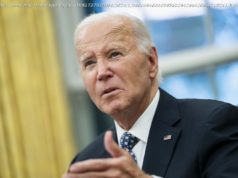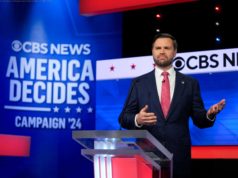The billionaire in pursuit of Twitter has often been described as a libertarian, but he has not shrunk from government help when it has been good for business.
The opinions poured in,280 characters at a time, as to whether it was good or bad that Elon Musk had offered to buy Twitter for more than $40 billion and take it private. A person’s politics typically dictated how they felt: Conservatives cheered it as a victory for free speech. Liberals fretted that misinformation would spread rampantly if Mr. Musk followed through with his plan to dismantle how the social network monitors content. But what no one seemed to be able to say with any certainty was what kind of political philosophy the enigmatic billionaire believes himself. That’s because Mr. Musk,50, who was born in South Africa and only became an American citizen in 2002, expresses views that don’t fit neatly into this country’s binary, left-right political framework. He is frequently described as libertarian, though that label fails to capture how paradoxical and random his politics can be. He has no shortage of opinions on the most pertinent and divisive issues of the day, from Covid-19 lockdowns (“fascist,” he called them) to immigration restrictions (“Very much disagree,” he has said). There is not much consistency in the miscellany of his public statements or his profuse Twitter commentary — except that they often align with his business interests. And despite the intense partisan reaction to his unsolicited bid to buy Twitter, his opaque politics make it difficult to say whether the elation and fear about how he would run the company are justified. He has railed against federal subsidies but his companies have benefited from billions of dollars in tax breaks and other incentives from federal, state and local governments. He has strenuously opposed unionization, criticizing the Biden administration for proposing a tax credit for electric vehicles produced by union workers. He is the co-founder of an electric car manufacturer, Tesla, who quit former President Donald J. Trump’s business councils after the administration pulled out of the Paris climate accord. But he recently ran afoul of environmentalists for calling for an immediate increase in domestic oil and gas production, though it would not be helpful to his own businesses in electric cars and solar energy. He is an avowed enthusiast for the First Amendment. But he has tried to force a journalist to testify in a defamation lawsuit against him, and he has often had outsize reactions to criticism. Four years ago, he floated a plan to create a website to rate the credibility of reporters, calling it Pravda, in an odd nod to the Soviet Union’s propaganda publication. (Nothing much came of it.) And a venture capitalist wrote at length about Mr. Musk canceling his order for a new Tesla after the investor complained about a Tesla event. Mr. Musk said he was a registered independent when he lived in California, the state he famously and loudly left for Texas because he said its business climate had grown too inhospitable. He has described himself as “politically moderate” but added, “Doesn’t mean I’m moderate about all issues.






